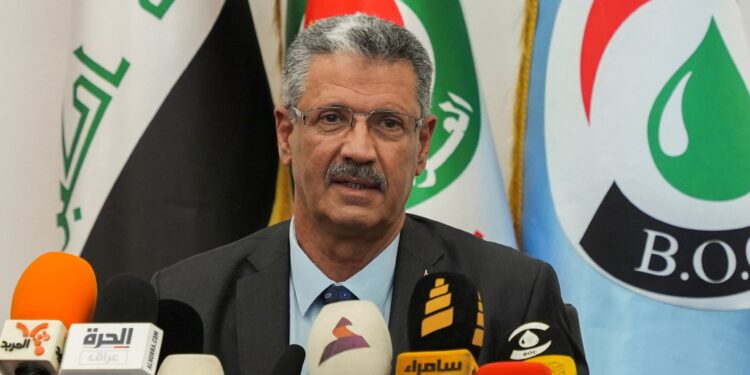Iraqi Oil Minister Hayyan Abdul -Ghani said today, Monday, that oil exports from the Kurdistan region of Iraq will resume next week, which has been going on for nearly two years on Kurdish oil exports, amid the improvement of relations between Baghdad and Erbil.
It is possible that the resumption of exports will increase supplies in the oil market, and thus affect prices.
Turkey stopped oil flows in March 2023 after the International Chamber of Commerce ordered Ankara to pay compensation to Baghdad of 1.5 billion dollars for oil exports without permits for the Kurdistan Regional Government through pipelines between 2014 and 2018.
visit
Abdel -Ghani told reporters, “Tomorrow, a delegation from the Ministry of Oil will visit the Kurdistan Region to negotiate the mechanism for receiving oil from the region and its export. The export will resume within a week,” Abdel -Ghani told reporters.
He added that Baghdad will get 300 thousand barrels per day from the region.
A possible agreement to end the conflict between Russia and Ukraine may lead to another increase in supplies, and the OPEC Plus Alliance for Oil Producers is scheduled to reduce production cuts as of next April.
Oil prices rose today, Monday, Brent crude was trading at $ 75.05 a barrel in the latest transactions.
The data of the Organization of Petroleum Exporting Countries (OPEC) shows that Iraq (the second largest producer in OPEC after Saudi Arabia) currently pumps about 4 million barrels per day, in line with the agreed production goal with the OPEC Plus coalition, which includes OPEC and allies, including Russia.
consent
It is not yet clear how Iraq will remain committed to OPEC discounts while strengthening the exports of the North, and whether it will reduce, for example exports from Basra in the south.
The Rudaw TV Network – its headquarters, Erbil – had previously quoted the Acting Minister of Natural Resources Kamal Muhammad in the Kurdistan region of Iraq as saying that the region’s oil exports may resume by March “after the completion of all legal procedures.”
Earlier this month, the Iraqi parliament agreed to a budget amendment to support the costs of producing international oil companies operating in Kurdistan, a step aimed at lifting the ban on North Oil exports.
The export resumption is expected to reduce economic pressures from the Kurdistan region after the stopping resulted in the delay of the salaries of workers in the public sector and the reducing basic services.



